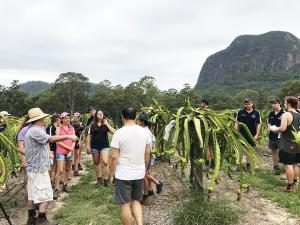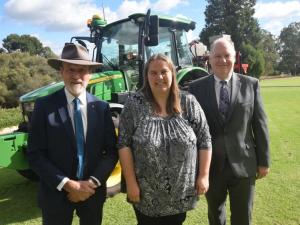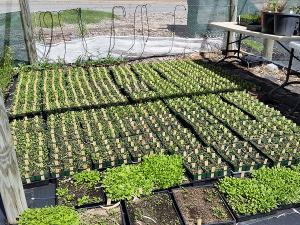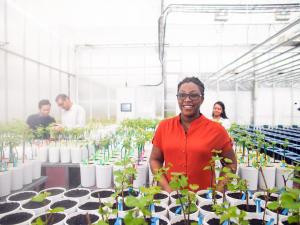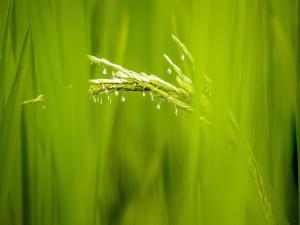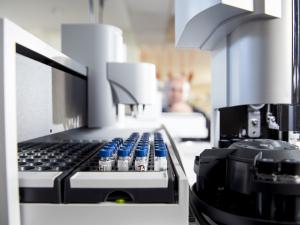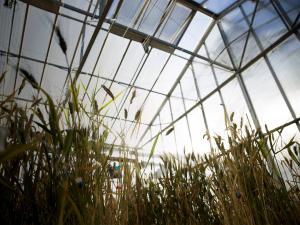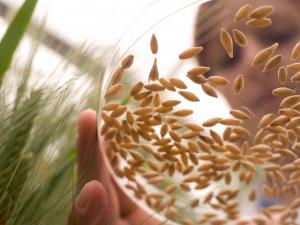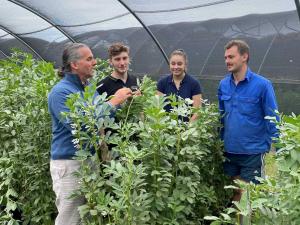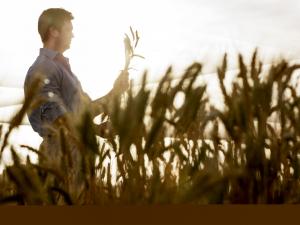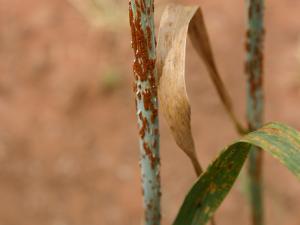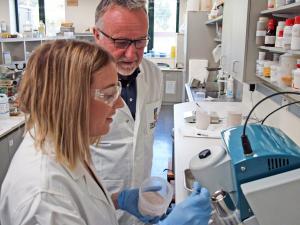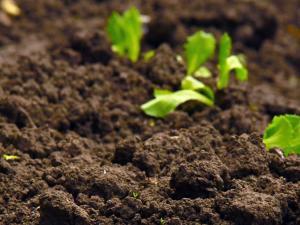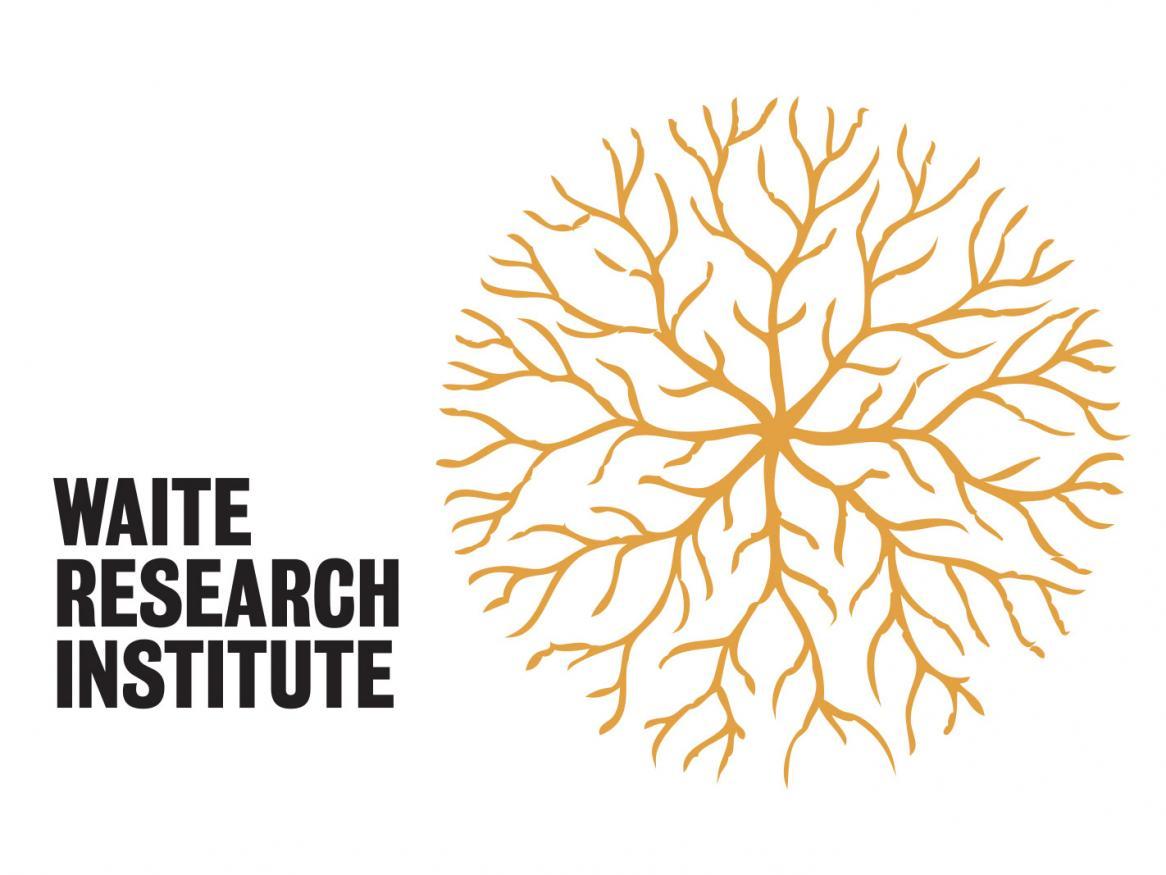Agricultural Science Research
We’re developing solutions to protect plants against diseases, pests and parasites, while studying how beneficial insects interact with a wide range of ecosystems including pasture crops, vegetables, fruits and vineyards.
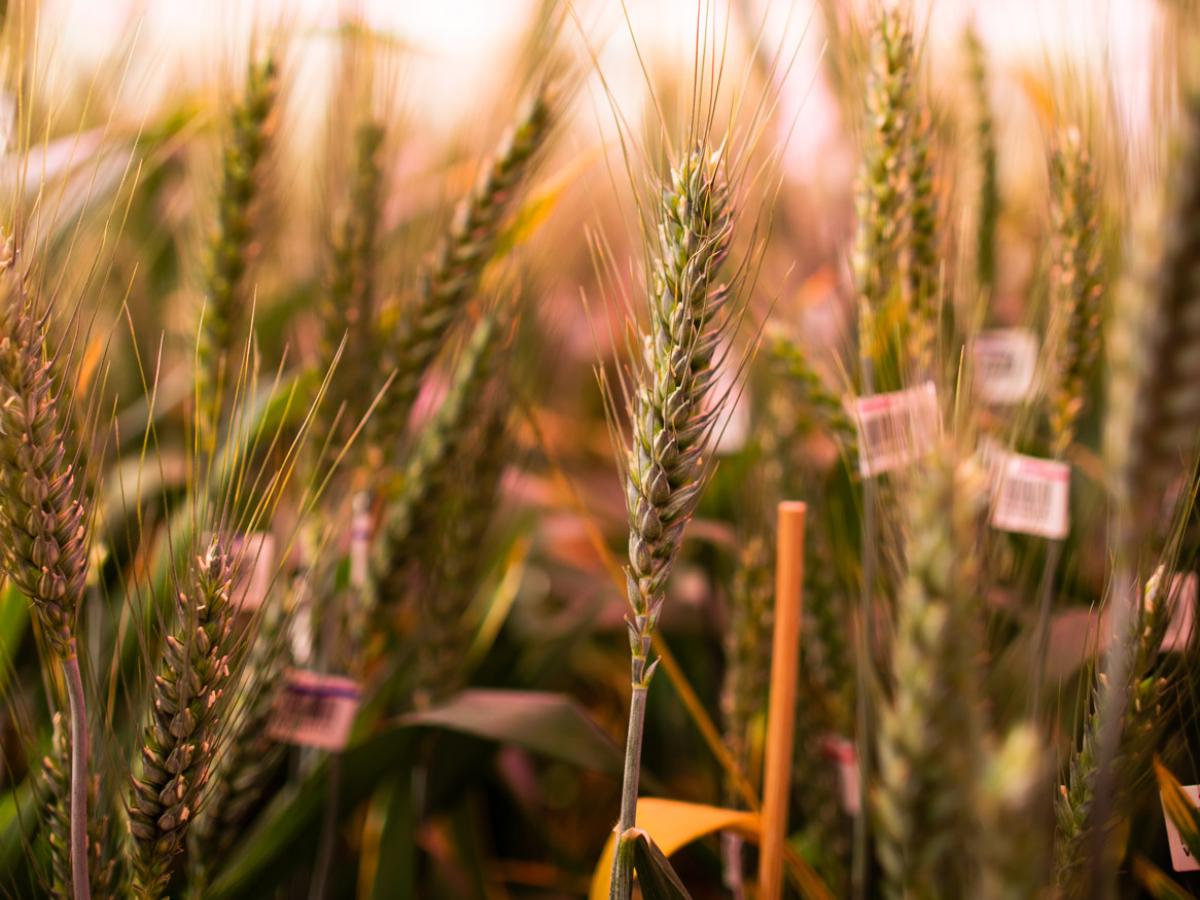
Our experts are co-located with industry and government partners at the University's Waite and Roseworthy campuses which allows us to investigate a wide-range of research areas including: biofortification, plant reproductive biology, plant breeding, soil chemistry, crop pollination, and agricultural crop bioinformatics.
Research strengths
-
Farming systems
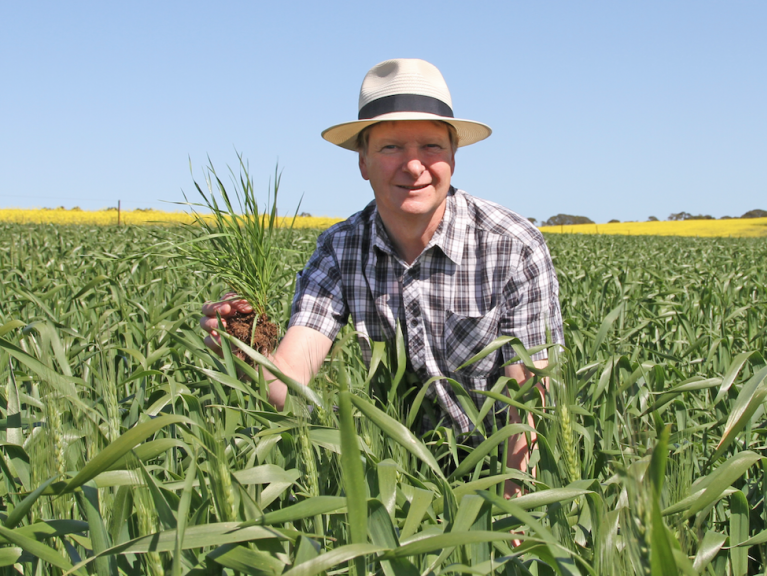
Our expertise on sustainable agricultural systems focuses on crop production and agronomy and is particularly relevant to dryland agricultural systems in Australia and overseas. Our internationally-recognised research also covers on biofortification, agroforestry and extension. Our experts in weed science research address integrated weed management, herbicide resistance, weed ecology and crop-weed interactions in agricultural systems.
Research centres and groups
- Legumes and nitrogen fixation: guides and resources for legume growers
- International agroforestry and extension systems: Research in developing countries supported by ACIAR
- SA Drought Hub: South Australian Drought Resilience Adoption and Innovation Hub
- Weed science research group: Agricultural weeds of concern to growers in Australian broad-acre farming systems
- Herbicide and Antimicrobial Innovation Laboratory: Research tackling antimicrobial and herbicide resistance.
-
Plant biology, pathology and biochemistry
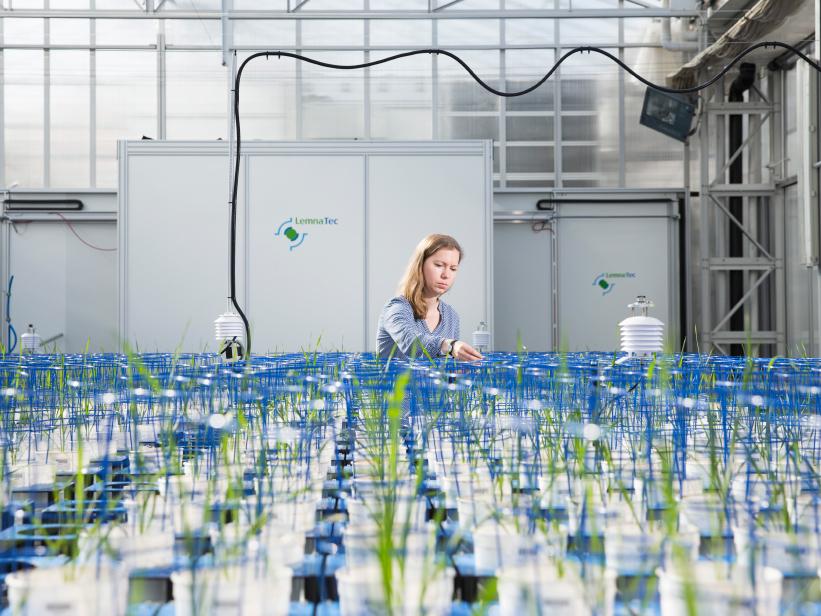
Our plant biology and biochemistry expertise covers a broad spectrum of plant science including plant and cell physiology, membrane transport, plant reproductive biology, plant cell wall biology and biochemistry, glycoscience and cereal chemistry. Our pathology research addresses the biology, ecology, and plant responses to attack and provides foundations for diagnosis, control and management of plant diseases, pests and parasites. We focus mainly on viticulture, broad-acre and horticultural systems, but also consider native vegetation and post-harvest damage to stored products.
Research centres and groups
- Australian Plant Phenomics Network & The Plant Accelerator®:
Automated high-throughput plant phenotyping system providing a range of imaging technologies (RGB, fluorescence, infrared and hyperspectral) to facilitate innovative high-quality research into plant performance in different environments. - University of Adelaide - Shanghai Jiao Tong University Joint Laboratory for Plant Science and Breeding:
Reproductive development and breeding innovation in rice (Oryza sativa) and barley (Hordeum vulgare). - Adelaide Analytical:
Provides researchers with fast, accurate results on plants, food and beverage analyses. - Membrane Transporter Expression Facility:
Enables expression of genes in a cell system that can be robotically screened for various membrane transport activities. - Herbicide and Antimicrobial Innovation Laboratory:
Research tackling antimicrobial and herbicide resistance. - ARC Centre of Excellence for Plants for Space:
Plants for Space goal is to enable humans to survive and thrive in Space, through developing new plant forms, products, and uses; and leading a global community that transforms plant performance and sustainability, on and off Earth.
- Australian Plant Phenomics Network & The Plant Accelerator®:
-
Plant breeding innovation
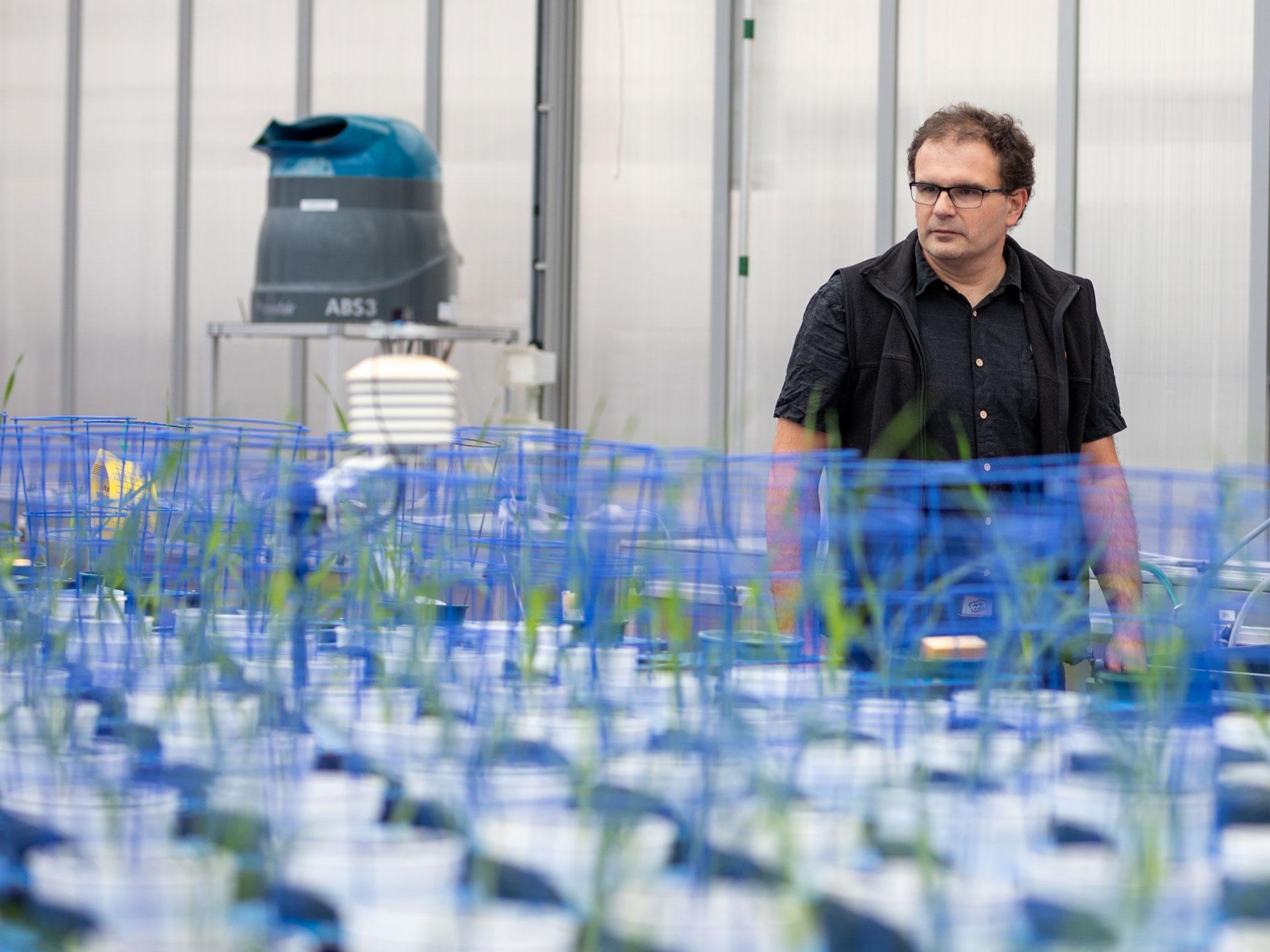
Our scientists analyse the genetic and epigenetic control of economically important plant traits such as abiotic stress, biotic stress, productivity and end-use quality. This helps us understand the causes of observed variation in plants so we can develop tools and technologies for crop improvement. We develop improved germplasm, breeding methods and breeding technologies, plus develop new varieties of durum wheat, faba bean, almond and ornamental eucalypts.
Research centres and groups
- Australian Plant Breeding Academy:
A strategic partnership between the University of Adelaide and Australian Grain Technologies to lift the capability of the agrifood sector across Australia and maximises future profits for growers, through new education and breeding research. - Australian Wheat & Barley Molecular Marker Program:
Mapping genes that contribute to the economically important traits - such as biotic stress traits - in cereals and the development of reliable markers for use in cereal breeding and germplasm development. - University of Adelaide - Shanghai Jiao Tong University Joint Laboratory for Plant Science and Breeding:
Research into reproductive development and breeding innovation in rice (Oryza sativa) and barley (Hordeum vulgare). - ARC Training Centre for Future Crops Development:
Building new capabilities for agriculture and global food security, through the use of socially responsible genetic and field technologies to develop future crops.
- Australian Plant Breeding Academy:
-
Soil science
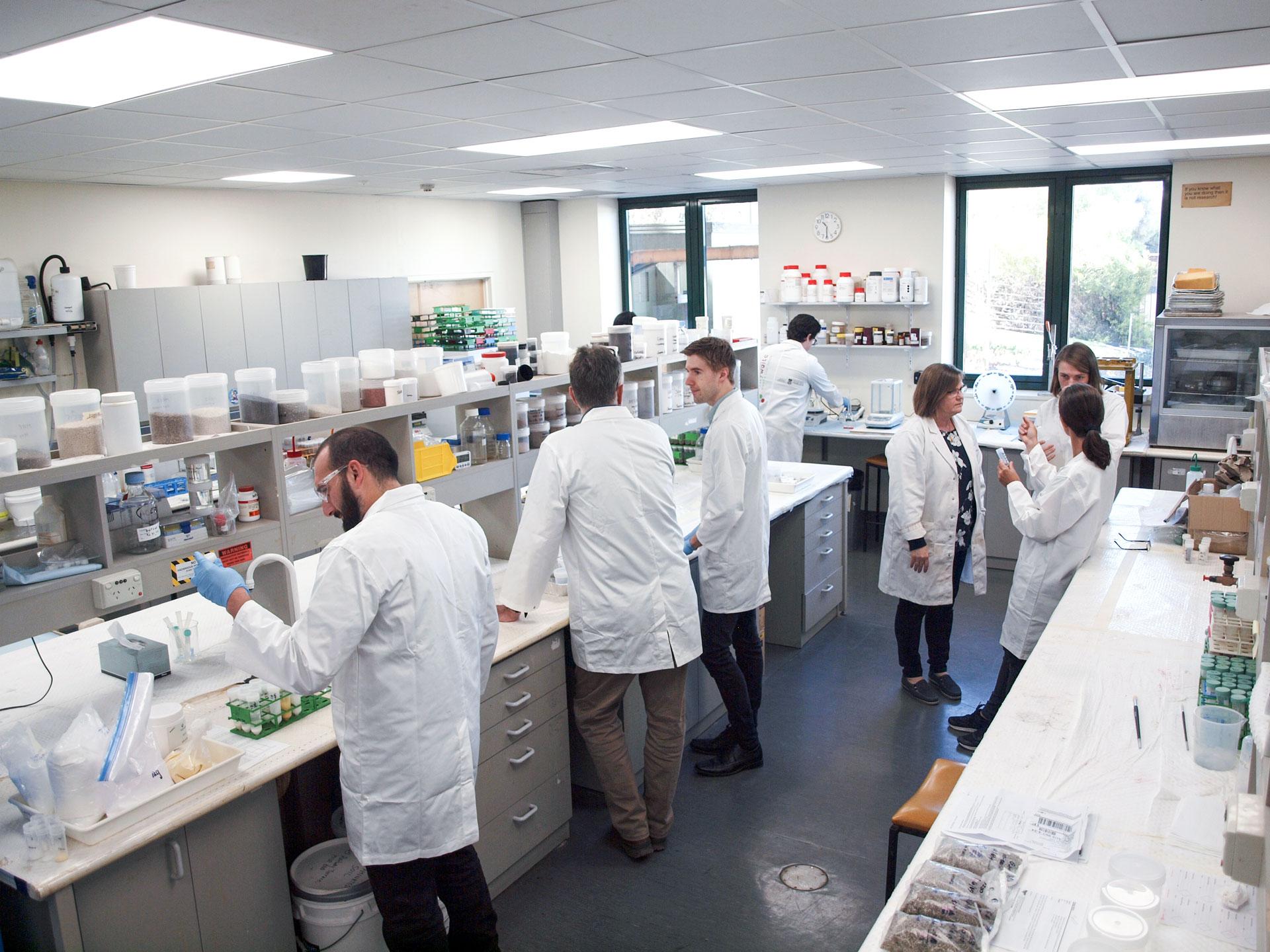
Our researchers combine scientific expertise in:
- soil chemistry – fertilisers, contaminants and soil carbon;
- soil physics – structure and water availability; and
- soil biology – nutrient cycling, roots and rhizosphere, mycorrhizae.
We conduct research that improves understanding of soil processes and functions, leading to improved methods for soil management which is critical for sustainability of agricultural and natural ecosystems.
Research groups and centres
- Fertiliser Technology Research Centre:
Novel research that's improving the quality and efficiency of fertilisers. Our scientists are international experts in soil chemistry, fertiliser technology and plant nutrition. - Soil Plant Atmosphere Interaction (SPAI) research group:
Exploring the impact of environmental change and management on soil ecological processes. - Graphene Hub:
Leading knowledge, research and development capabilities and critical services to assist industry commercialise graphene research.
-
Entomology and pollination
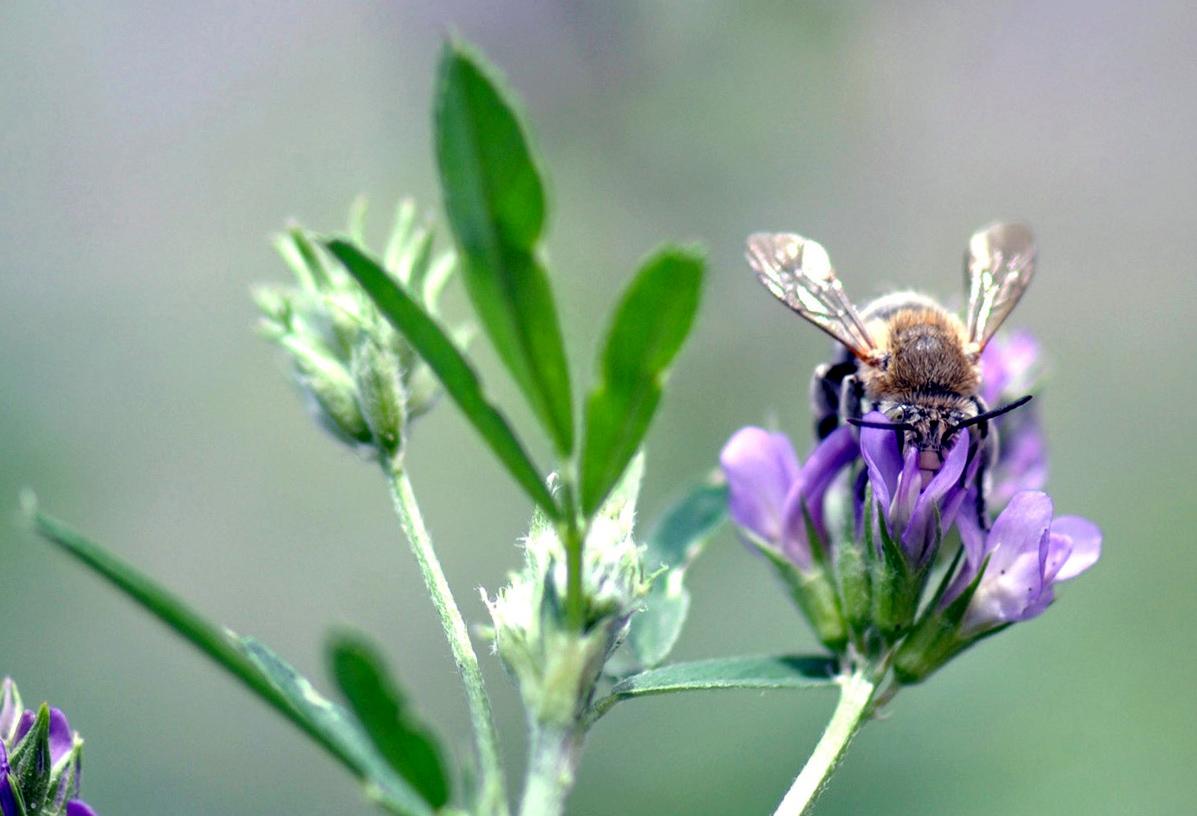
Our research in entomology and pollination addresses the biology, behaviour, ecology of insects. We study insects that occur in a wide range of ecosystems, including pasture crops, vegetables, fruits, vineyards, greenhouse crops and natural ecosystems.
Key areas of interest are biological control of insects and weeds, integrated pest management, biosecurity, crop pollination and conservation and enhancement of ecosystem services delivered by insects. Our research considers beneficial parasitic wasps, predatory arthropods, crop pollinators and a wide range of pest organisms.
-
Biometry and statistics
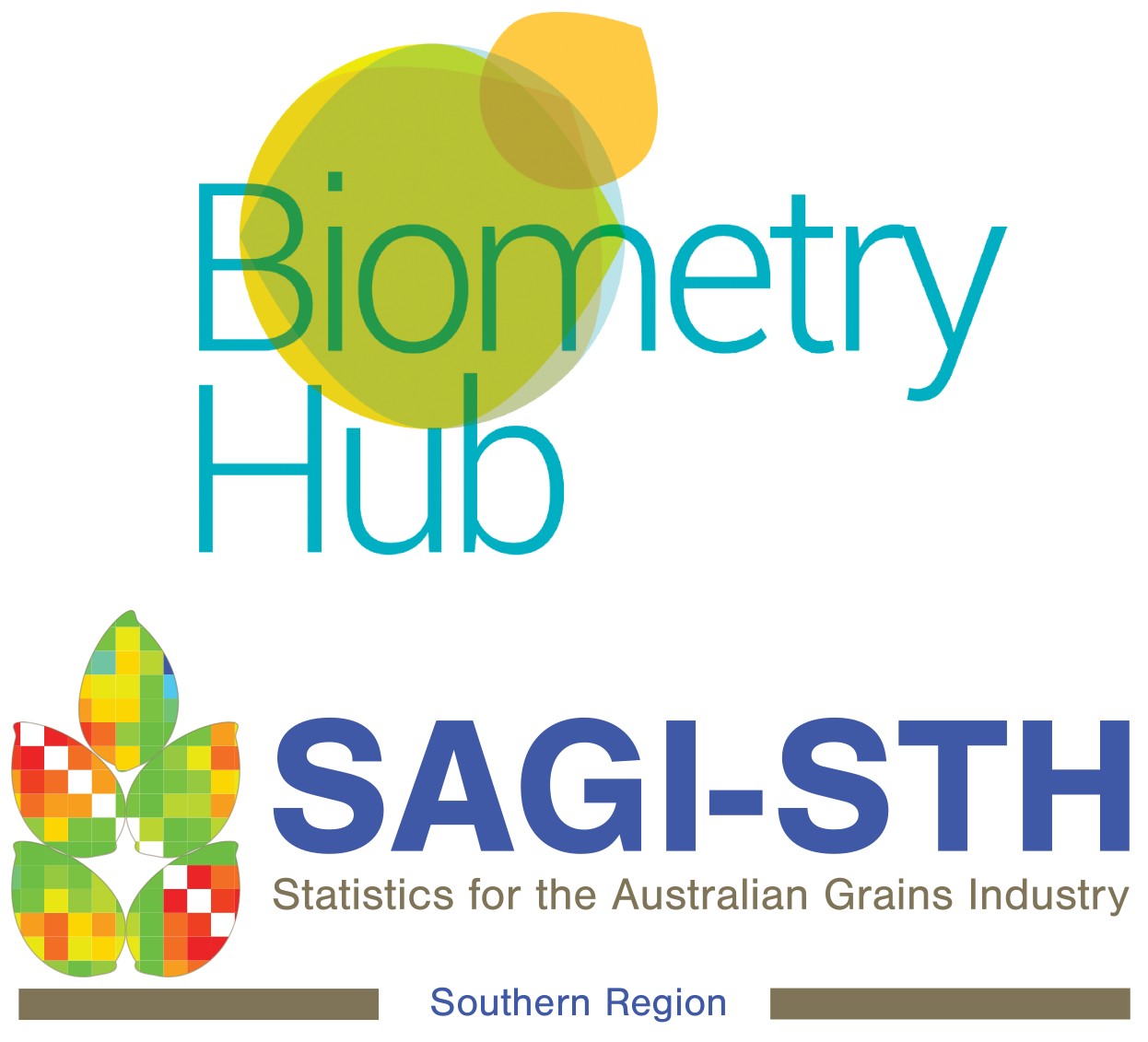
In the era of data-rich agriculture, biometry research involves methodological statistics development and the use of modern scientific computing methods for the design and analysis of research studies and experiments conducted in the life sciences.
The University of Adelaide Biometry Hub specialises in statistical methodologies for field trials, comparative and multi-factorial experiments and field sampling in application to agriculture, horticulture, oenology and food sciences.
-
Crop bioinformatics
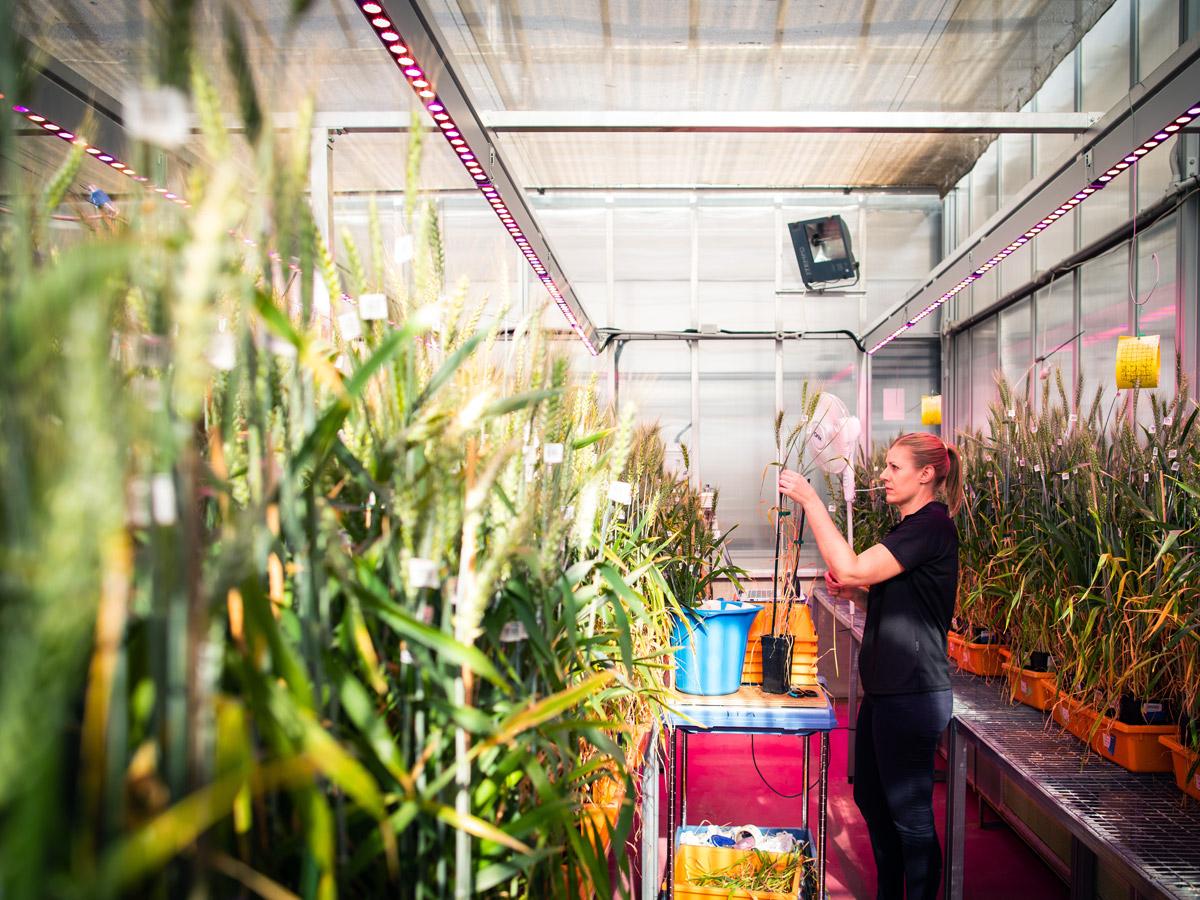
Technological and data driven approaches have become the cornerstone of modern biology. Bioinformatics is an interdisciplinary science with the focus on developing and applying computationally intensive methods to solve formal and practical problems arising from the management and analysis of biological ‘big data’.
Specialising in agricultural crop bioinformatics, our team provides expertise across the intersection of molecular biology, plant breading, genetics, biochemistry, computer science, mathematics and statistics.
-
Plant phenomics

Growing and characterising plant performance in controlled environments, greenhouses and the field, is now the rate limiting step in crop research. New technologies are required for the high throughput, non-destructive phenotyping of plant traits. Our research not only develops new protocols for measuring plant traits using state-of-the-art imaging cameras, robotics and drones but also develops automated analysis tools using artificial intelligence to accelerate analysis.
-
Lead researchers
Name Research strength Prof Amanda Able Plant-pathogen interactions; post-harvest physiology Dr Anh Pham Molecular breeding and crop improvement in barley and soybean Dr Ashlea Doolette Soil chemistry A/Prof Bettina Berger Plant phenomics, salinity tolerance A/Prof Bryan Coad Biomimetic materials for understanding plant-pathogen interactions Dr Camille Buhl Insect collective behaviour; locust management; complex systems modelling Prof Christopher Preston Weed ecology and management; management of herbicide resistance Dr David Logan Arthropod pest biology and ecology A/Prof Ehsan Tavikkoli Carbon and nutrient geochemistry in agricultural systems A/Prof Glenn McDonald Crop physiology and plant nutrition A/Prof Gurjeet Gill Crop ecology and tillage systems; weed ecology and management Dr Hang Weng Soil science processes Dr Haoyu Li Plant phenotyping and plant genetics Dr Huajian Liu Machine learning and image analysis Prof Jason Able Plant breeding, cereal epigenetics, barley quality, frost tolerance in cereals, industry relationships Dr Jenna Malone Evolution and inheritance of molecular resistance mechanisms Prof Jenny Mortimer Synthetic biology, biofuels, bioproducts, complex multi-unit sugar chains Dr Jiaen Qiu Plant cell and molecular biology, plant physiology Dr Julie Hayes Physiology to agricultural genetics and pre-breeding research Dr Julian Taylor Statistical methodology and modelling Dr Kate Delaporte Ornamental eucalypt breeding Dr Katja Hogendoorn Behavioural ecology and evolution of native bees A/Prof Kenneth Chalmers Molecular genetics for cereal breeding Dr Krista Sumby Microbial ecology and molecular biology Dr Laura Wilkinson Hops and Amaranth breeder A/Prof Luke Mosley Soil and water science and management A/Prof Matthew Denton Managing legumes and nitrogen fixation in farming systems Prof Matthew Gilliham Transport and signalling; nutrition and stress tolerance (salinity) Dr Matthew Knowling Decision agriculture Prof Matthew Tucker Cereal reproductive biology Dr Megan Shelden Root biology, abiotic stress tolerance Prof Michael McLaughlin Environmental chemistry and toxicology; fertilisers and plant nutrition Dr Olena Kravchuk Nonparametric inference and applied statistics in plant and soil sciences Dr Peter Boutsalis Weed science and herbicide resistance Prof Rachel Burton Plant cell walls, grains for health, biofuels Dr Reddy Pullanagari Crop science and agronomic research A/Prof Scott Boden Cereal inflorescence architecture and flowering time Dr Stephanie Watts-Fawkes Plant-fungal symbiosis Dr Steven Hussey Plant developmental biology, functional genomics and applied biotechnology A/Prof Stuart Roy Abiotic stress tolerance in crops and crop biotechnology Dr Tamara Jackson Improving farming and marketing systems for sustainable, efficient, diversified food systems Dr Tatiana Soares da Costa Herbicide and antimicrobial discovery, herbicide and antimicrobial resistance, protein structure and function, protein-inhibitor interactions, chemical synthesis
Dr Thomas Lines Soil health Dr Xiujuan Yang Plant biology and reproductive development
Waite Research Institute
The Waite Research Institute drives innovation to secure a sustainable future for Agriculture - by creating high-quality, nutritious and climate-resilient products. We do this through close partnerships with the agriculture, food and wine sectors.
Agriculture news
Episode 4, In Their Element Podcast Meet agriculture and winemaking graduates Laura and Brendan - they're taking the wine and spirit industry by storm and creating their very own 'Big Label Energy'.
Food (science), glorious food (science)
Episode 3, In Their Element Podcast Meet Millie Shinkfield, her food and nutrition science studies gave her the appetite to pursue a career with one of Adelaide's largest food producers.


